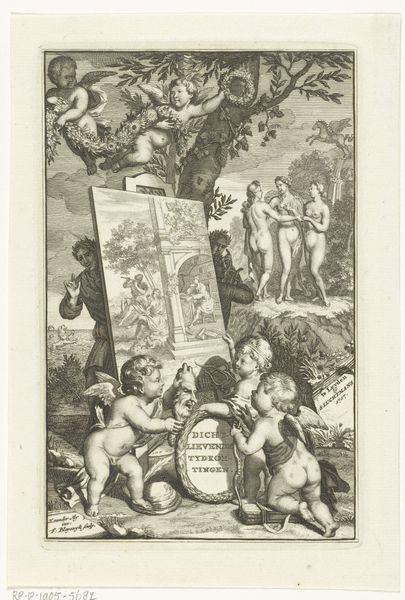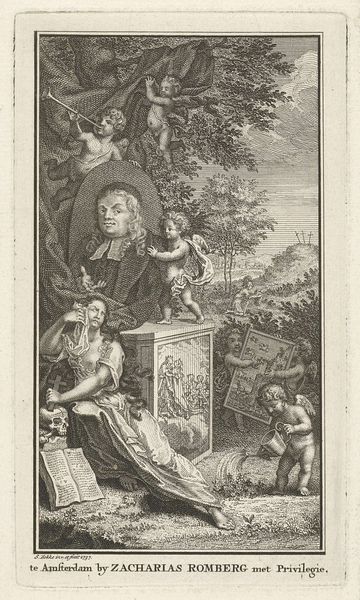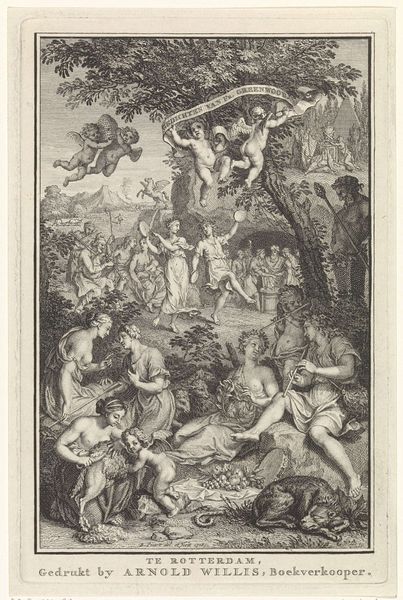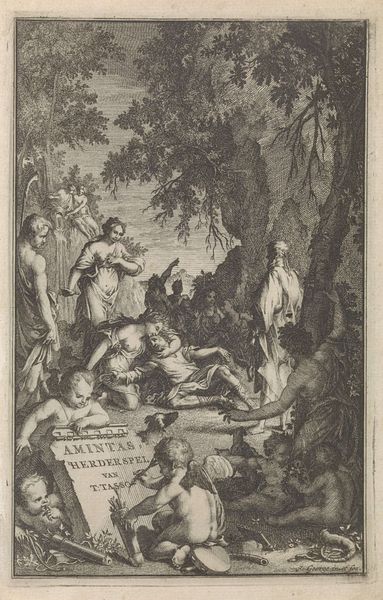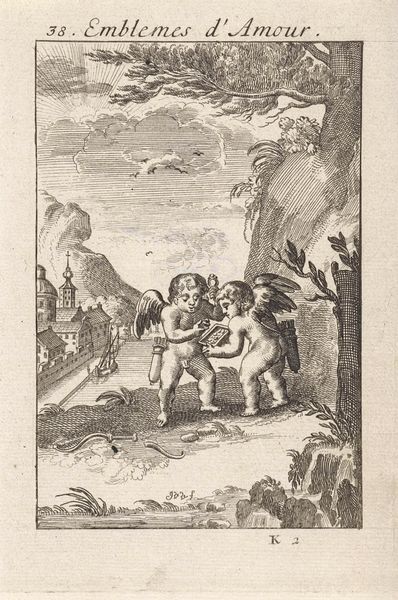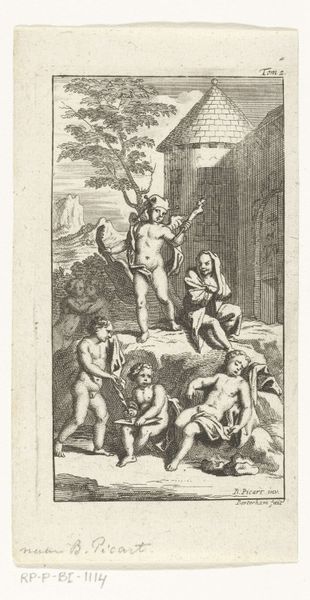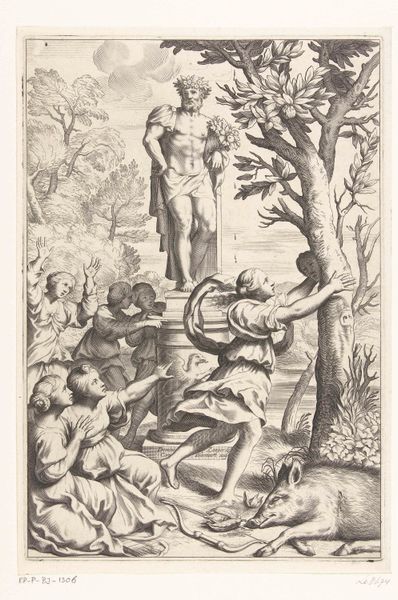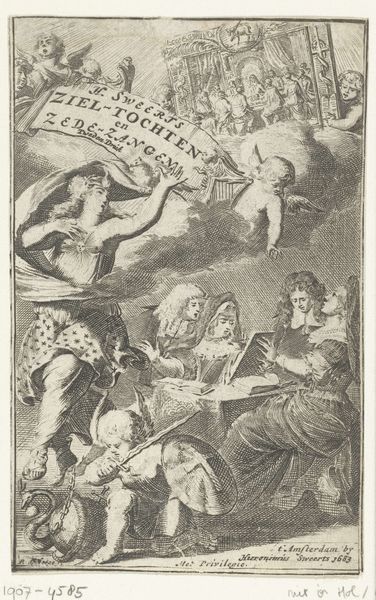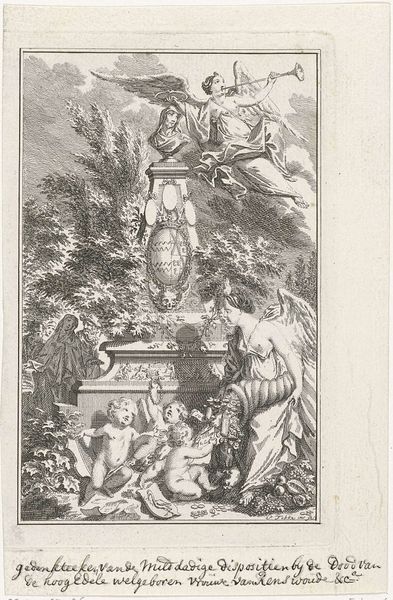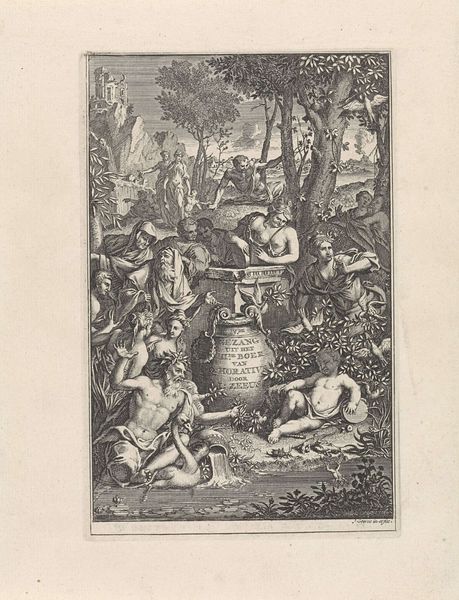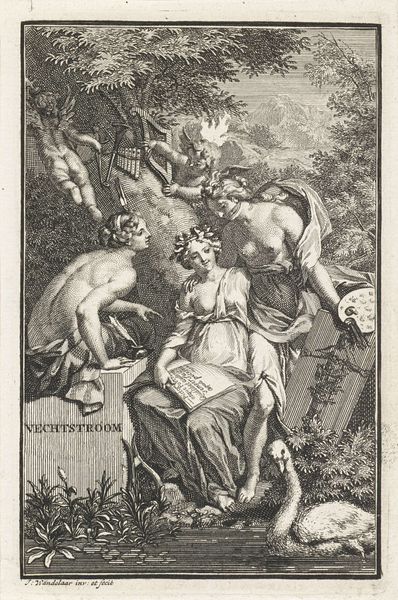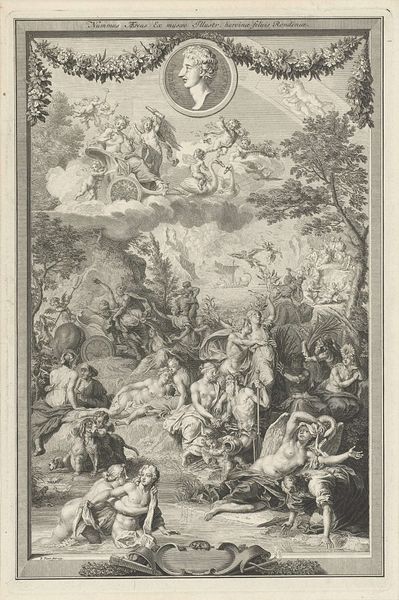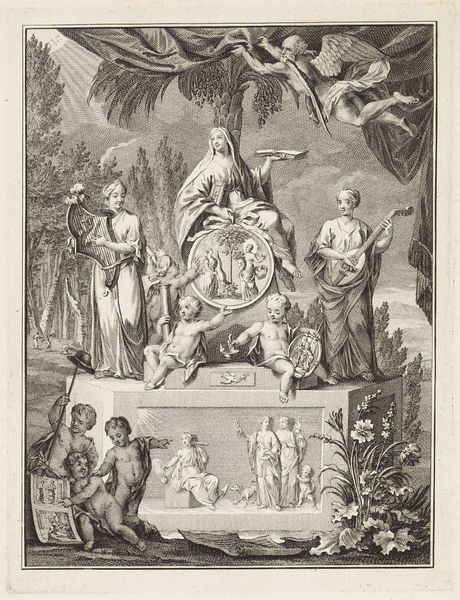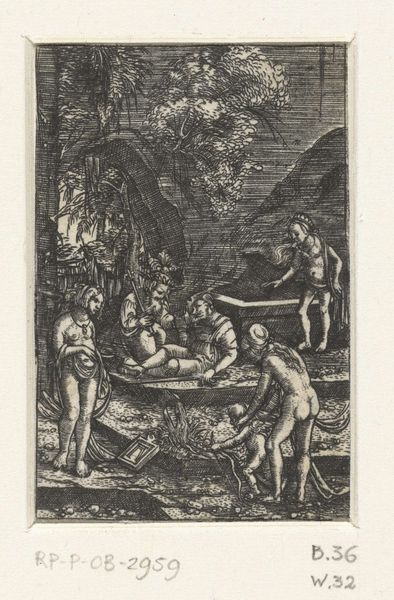
print, engraving
#
allegory
#
baroque
#
pen drawing
# print
#
old engraving style
#
figuration
#
history-painting
#
nude
#
engraving
Dimensions: height 166 mm, width 107 mm
Copyright: Rijks Museum: Open Domain
Curator: At the Rijksmuseum, we have François van Bleyswijck’s “Allegory on Poetry,” an engraving likely completed between 1681 and 1718. It's brimming with figures, objects, and classical references. What strikes you about it? Editor: My eye is drawn immediately to the abundance of cherubs. They create a sense of playful innocence that seems juxtaposed with the more serious themes suggested by the nudes and classical imagery. Curator: Precisely. These putti, common in Baroque allegories, contribute to the overall sentiment, but let’s not overlook how the historical context infuses this engraving. The Dutch Golden Age, a period of unprecedented artistic and intellectual production, saw such allegories flourish as a means of conveying complex ideas about society and culture. Editor: Absolutely. The arrangement is intriguing: paintings displayed within the print itself, resembling theater backdrops. Each depicts scenes associated with poetry—musicians, a scribe. The three female figures at the upper right evoke the classical muses or perhaps the graces, don't they? Curator: Indeed. They lend an air of timeless inspiration to the scene, channeling classical ideals into a celebration of poetic art. The choice to render the entire composition in the intricate detail of engraving enhances the work’s intellectual weight. The medium elevates it from mere decoration to a statement on poetry's lasting impact on culture. Consider its distribution as a print too; this made artistic ideas widely accessible. Editor: Thinking about accessibility, what do you make of the inscription the cherubs are holding? It seems integral to understanding the work's overall intention. Curator: That's an excellent point. Inscriptions in allegorical prints were almost like a key, providing the viewer with a more direct way to decipher the visual symbolism, steering interpretation towards the intended meaning. Editor: Looking at the print, my imagination takes me back to the artistic and intellectual life of the era. Curator: And for me, it is an excellent window into understanding art's public function. Thanks for joining me to explore Van Bleyswijck’s engraving.
Comments
No comments
Be the first to comment and join the conversation on the ultimate creative platform.
